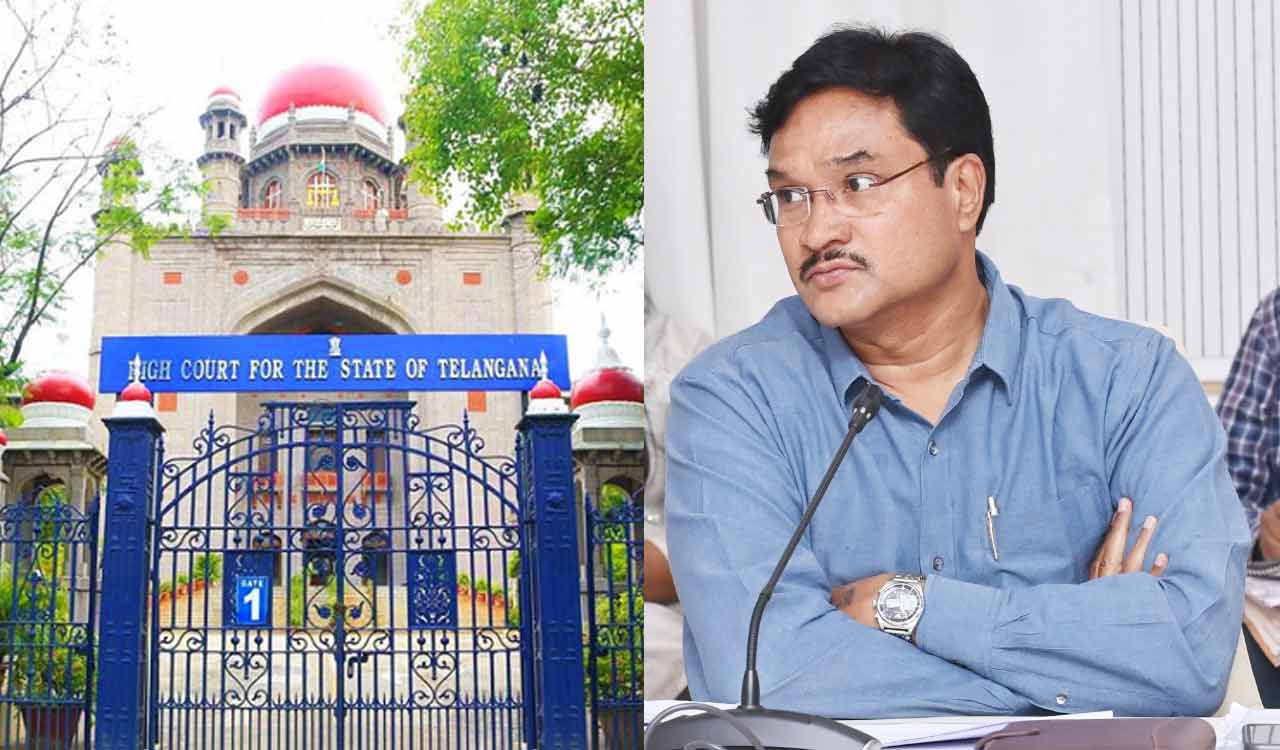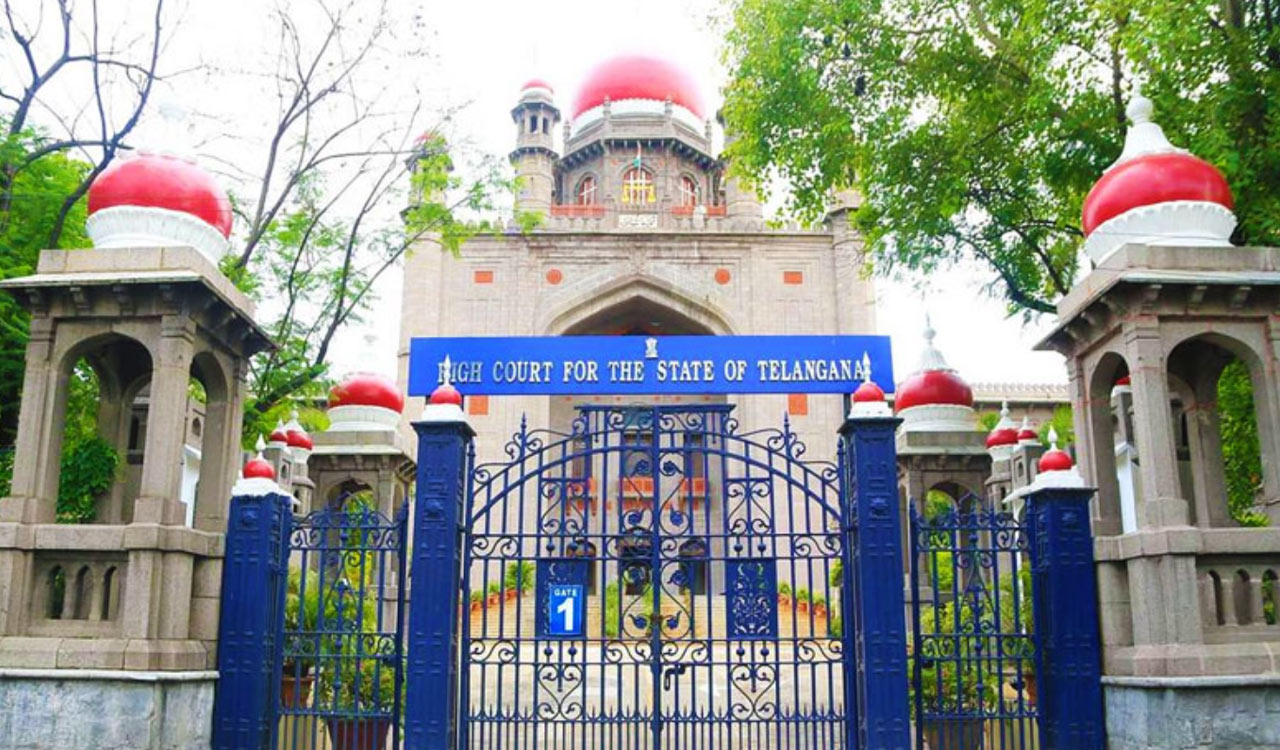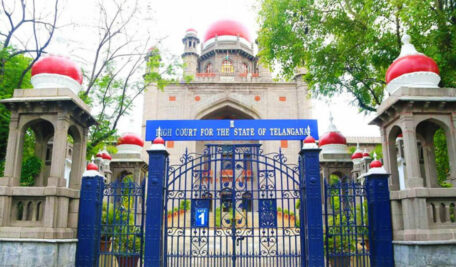Telangana HC pulls up HYDRAA for ‘repeated misuse of authority’
Justice B Vijaysen Reddy of the Telangana High Court strongly criticised HYDRAA and its Commissioner AV Ranganath for repeated violations of judicial directions under the guise of lake restoration. Hearing contempt petitions, the judge warned that authority must serve the public, not display power, and questioned HYDRAA’s statutory basis for unilateral actions.

By Legal Correspondent
Hyderabad: Justice B Vijaysen Reddy of the Telangana High Court on Friday delivered a sharp and serious admonition to HYDRAA and its Commissioner, AV Ranganath, over what the court described as “repeated misuse of authority and open violations of judicial directions” in the name of lake restoration and protection of water bodies.
Hearing a batch of contempt cases, the judge made it clear that the agency must operate strictly within the limits of law, and should not assume powers that do not belong to it. Ranganath joined the proceedings virtually.
The court questioned why senior officials, ‘sitting in the Secretariat with power’, seem to believe they are exempt from following public order and legal process.
Justice Vijaysen Reddy said authority exists to serve the public, not to display might. If officials were keen on showing their power, the court too had greater constitutional authority at its disposal but would prefer not to be pushed to use it.
The Judge noted that contempt petitions against HYDRAA and its Commissioner were becoming a regular feature.
“Every day, matters are being filed alleging that your department is ignoring court orders. The Court knows the value of its own orders. If they are disobeyed, the Court also knows how to respond,” he observed.
The case before the Bench concerned alleged violations of status quo orders relating to works near Tammidi Kunta tank in Khanamet village. Despite clear directions issued in April, HYDRAA is said to have gone ahead with excavation and other activities. Landowners complained that the agency was attempting to dispossess them under the guise of lake rejuvenation, causing their lands to be flooded and rendered unusable.
They also questioned HYDRAA’s authority to unilaterally declare their lands as ‘assignment lands’ without any official survey establishing the Full Tank Level (FTL) or buffer limits of the tank.
Justice Vijaysen Reddy pressed the Commissioner to explain the statutory basis for HYDRAA’s activities. The Government Order constituting HYDRAA mentions protection of water bodies, the Court noted, not lake rejuvenation or large-scale demolition drives.
“Are you empowered to take over the functions of GHMC, HMDA, Municipalities, the Sewerage Board, the Revenue Department and every other civic authority?” the Bench asked.
When Ranganath responded that the public appreciated HYDRAA’s efforts and often approached the agency with complaints about encroachments, the Court referred to Supreme Court rulings mandating notice and a fair opportunity before any demolition. “If you are following the law, why are so many people forced to come to this Court?” the Judge asked.
The Bench expressed particular concern about reports of HYDRAA officials allegedly demolishing small sheds and homes on plots of 50 to 100 square yards, often on weekends, without notice.
“People make mistakes while purchasing land. They may not know whether a plot falls in FTL or buffer zone. You cannot throw them onto the streets overnight. Even governments later regularise such structures under LRS and BRS,” the Court noted.
Justice Vijaysen Reddy told the Commissioner that if the State truly wished to restore lakes, it must acquire the required land lawfully rather than dispossessing citizens by force or without legal backing.
“Do not harm people in the name of doing good,” the Court said, stressing that lake protection cannot become a pretext for arbitrary action.
Before concluding, the Judge advised Ranganath to ensure that HYDRAA does not return to the Court on similar allegations. The Bench made it clear that adherence to judicial orders and due process is not optional, and that any further violations would invite serious consequences.
Related News
-
Revanth Reddy govt’s 99-day action plan clouded by funding ambiguity
3 mins ago -
Middle East Crisis: Flights to India partially resumed after five-day disruption
16 mins ago -
Harish Rao criticises Revanth Reddy for harassing officials with frequent transfers
22 mins ago -
Telangana SSC hall tickets 2026 available from March 5 online and via WhatsApp
25 mins ago -
GHMC directs 100% e-waste, bio-medical waste collection
34 mins ago -
Telangana: Youth found dead under suspicious circumstances in Vemulawada
55 mins ago -
Fee reimbursement scheme under threat in Telangana
1 hour ago -
Cyber criminals using AI effectively to lure people: Cybercrime DSP
1 hour ago




